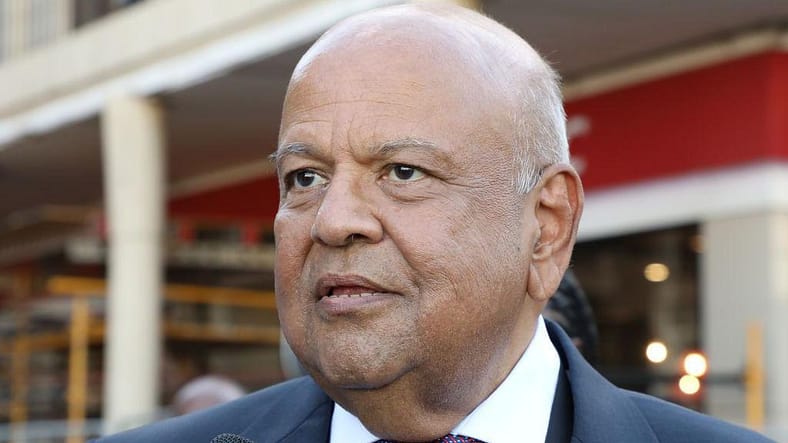South Africa’s former Finance Minister, Pravin Gordhan, has died at the age of 75, his family said.
The anti-apartheid struggle veteran played a key role in South Africa’s transition to democracy and helped negotiate the end of white-minority rule.
As well as finance minister, he occupied other top government and administrative roles since the 1990s until he announced his retirement from politics in May.
The veteran cabinet minister died in hospital early on Friday after “a short, courageous battle with cancer”, his family said in a statement.
It added that he was “surrounded by his family, closest friends and his lifelong comrades in the liberation struggle when he passed away in the early hours this morning”.
He is credited with turning around the national tax agency – the South African Revenue Service – and making it a credible and effective institution between 1999 to 2009.
Gordhan was then finance minister from 2009 to 2014 and subsequently moved to the Department of Cooperative Governance & Traditional Affairs, a position he held for a year.
He had a second 16-month stint as finance minister from December 2015 after a debacle when President Jacob Zuma appointed the relatively unknown David van Rooyen to the post and sacked him four days later.
Gordhan was born in in 1949 in the eastern port city of Durban and his parents were traders, who had emigrated to South Africa from India in the 1920s.
From the early 1970s, Gordhan, as a pharmacy student, became involved in the struggle against white-minority rule. In the following decade he was a key figure in the United Democratic Front (UDF), a coalition of anti-apartheid organisations.
He was jailed several times for his activism.
In 1991, he co-chaired the Convention for a Democratic South Africa (Codesa), which was responsible for negotiating the end of apartheid and the establishment of a democratic government.
As finance minister, he was seen as a competent safe pair of hands, who encouraged stability and discipline at the treasury.
He was a prominent figure in the fight against state capture, a term used in South Africa to describe the alleged undue influence of private interests over state institutions, often for corrupt purposes.
In 2017, he was dramatically sacked as he was seen as a bulwark against corruption in President Zuma’s administration, which was facing growing criticism.
The Gupta family, close associates of Mr Zuma, were at the centre of these allegations. Both the Guptas and Mr Zuma deny any wrongdoing.
In 2016, Gordhan was charged with fraud but the charges were later dropped. He then described the allegations as politically motivated.
He was appointed to his final cabinet role – public enterprises minister – in 2018, where he was tasked with tackling corruption in the huge state-owned enterprises such as the electricity generator Eskom and the national airline South African Airways.
But for some observers he did not succeed in this role, and the businesses remain in a parlous state.
Gordhan announced his retirement ahead of May 2024 elections and had kept a low profile since then.
“I have no regrets, no regrets… We have made our contribution,” Gordhan said in a farewell message before his death.
In his tribute, President Cyril Ramaphosa described Gordhan as an outstanding leader and a beacon of the fight against corruption.
He urged the country to remember Gordhan’s “personal sacrifices” from his anti-apartheid activism days, right up to the last days he retired from active politics.
Gordhan is survived by his wife Vanitha and their daughters Anisha and Priyesha.

Go to BBCAfrica.com for more news from the African continent.
Follow us on Twitter @BBCAfrica, on Facebook at BBC Africa or on Instagram at bbcafrica

